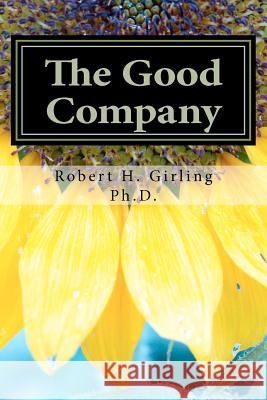The Good Company Revised Edition » książka
The Good Company Revised Edition
ISBN-13: 9781477534076 / Angielski / Miękka / 2012 / 218 str.
The Good Company, Library and Academic Edition tells the story of twenty inspiring companies that prioritize people, the planet and profit. Beginning with an analysis of why our current economic model is creating a host of social and economic problems-- Girling points to companies that are are solving the world's problems. These are the Good Companies. And here's the bottom line - Good Companies-- are profitable. So what do these companies do? What did Eileen Fisher do to create such a great place to work? How does Give Something Back make money year after year while giving away most of its profits? How did a small Danish company come to take the lead in halting dreaded diseases in Africa? What did Triodos Bank do that helped it avoid Wall Street's toxic mess? The book tells the secrets of how companies like Eileen Fisher, Clif Bar, Triodos Bank, TOMS Shoes, Google, Kiva and many more have built profitable business models while serving the community and healing the planet. Some companies do this by promoting right action. Others promote social justice, or strive to treat their employees fairly and with respect. Some firms pursue policies designed to restore and revitalize Planet Earth. They refuse to pursue a narrow path of selfishness but rather, like Aravind Eye Care and Give Something Back, take risks to do what is right. These companies-Good Companies-are able to act based on a love for fellow beings while also keeping a close eye on the financial bottom line. What motivates them to pursue noble aims? What characterizes their missions? What principles and practices do they follow? And what lessons can we learn from them? In fact you might be thinking, "I would like to start my own 'good company.' Where do I begin? What are the lessons I can take from these stories? What do they have to tell me?" In the concluding chapter, the author points to the proven keys you need to start a good company. Professor Girling states why we need companies to restore our communities, repair our ecosystems, and provide meaningful work. In plain language, the author explores the nature of companies in today's economy, why we need a new type of corporation, and the organizations leading the movement toward change. The Library and Academic Edition includes an index and references for further reading.
Zawartość książki może nie spełniać oczekiwań – reklamacje nie obejmują treści, która mogła nie być redakcyjnie ani merytorycznie opracowana.











